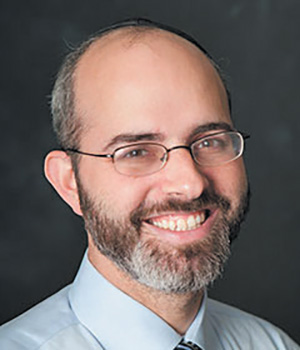
May these words of Torah serve as a merit le’iluy nishmat Menachem Mendel ben Harav Yoel David Balk, a”h.
This week we learned Sanhedrin 71. These are some highlights.
Sanhedrin 71: Why do we say “Mimkomo Hu yifen” during Kedusha of Musaf?
Our daf teaches about the rebellious teen. It teaches that if one, or both, of his parents forgive him, he is not punished for his misdeeds. Chatam Sofer teaches that this is the reason for the text of the Kedusha prayers that we recite on Shabbos and Yom Tov.
Tosfot (Avodah Zara 3b s.v. Sheniyot) teaches that Hashem sits on His throne of judgment in the first few hours of the morning. After the first three hours, Hashem appears as an aged sage busy learning Torah.
In the Shacharit of Shabbos we say in the Kedusha prayers, “Mimkomcha Malkeinu tofia v’timloch aleinu, From Your place, our King, may You appear and rule over us.” In the Musaf Kedusha prayers we say, “Mimkomo Hu yifen b’rachamim, From His place He will turn in mercy.” Why is there a change of text from the morning to the afternoon?
Chatam Sofer explains that in the morning, during the Shacharit prayers, Hashem is sitting on His throne of judgment and He is judging. When He is the judge, we are the slaves. We have sinned against Him. Our Gemara teaches that a parent can forgive a rebellious child. A master can therefore also forgive a rebellious slave. We appeal to Hashem to forgive us. Either as a father or as a master He can forgive. If He would forgive we would not be punished. We therefore ask Him to appear from His place in mercy and forgive us. After the first three hours of the day, Hashem appears as a Torah scholar. When Musaf is recited, Hashem appears as a sage. If He is the master of Torah, He is the Sanhedrin. We who sin are then like a zakein mamrei, a rebel sage who refuses to accept the rulings of the High Court. The High Court is not allowed to forgive its honor. They cannot allow the sage to get away with his disobedience. Gemara Sanhedrin 14b teaches that zakein mamrei is only applied when the sage rejects the ruling of the Sanhedrin when they are sitting in their room in the Temple. If he rejects their words while they are in a village, he does not have the status of zakein mamrei. Since by Musaf the Almighty is the ultimate Torah sage, He cannot forgive us who are rebellious sages. We therefore ask Him, “Mimkomo Hu yifen b’rachamim, From His place He will turn in mercy.” We are requesting that He turn away and move away from His place. Once He is not in the normal spot, we will not be punished for our misdeeds. On Yom Kippur, the Almighty never sits in judgment. All day He appears as a loving, grandfatherly Torah sage. This is why during all the prayers of Yom Kippur we say “Mimkomo Hu yifen b’rachamim.”
Rav Zilberstein feels that if a person forgot, and during the Musaf Kedusha said Mimkomcha Malkeinu tofia instead of Mimkomo Hu yifen b’rachamim, so long as the chazan has yet to say the next line, he should go back and say the correct text. According to Chatam Sofer, Musaf is a time for Mimkomo Hu yifen. We are appealing that He move. During Musaf, if He stays in His place, He may not be able to forgive us. It is not the time to say to Hashem to appear with mercy while He is in His place, Mimkomcha alkeinu tofia.
By Rabbi Zev Reichman
(Chashukei Chemed)
Rabbi Zev Reichman teaches Daf Yomi in his shul, East Hill Synagogue.










